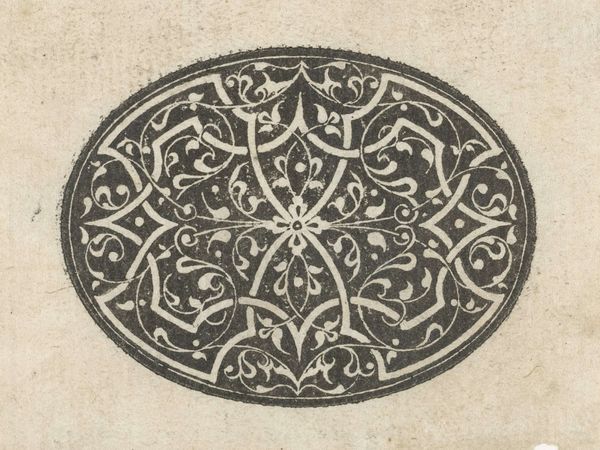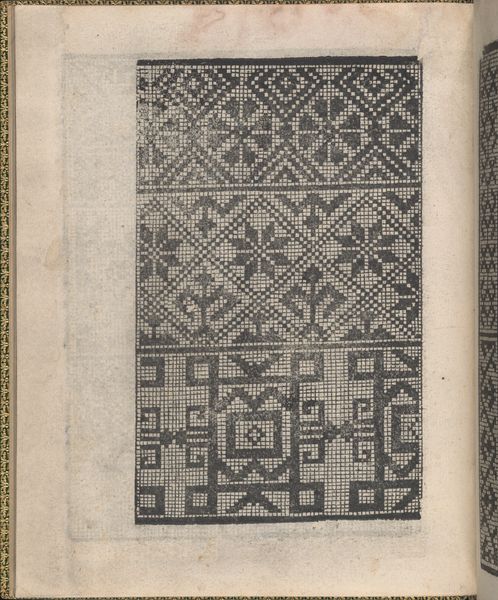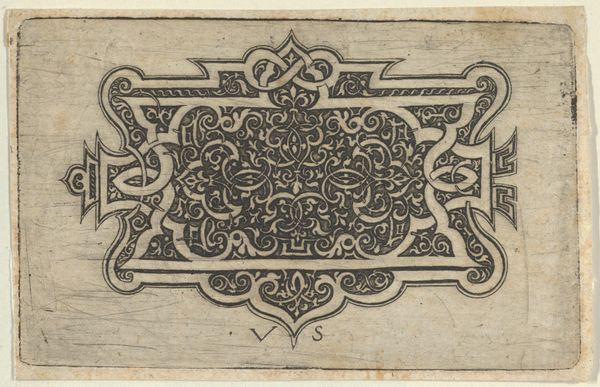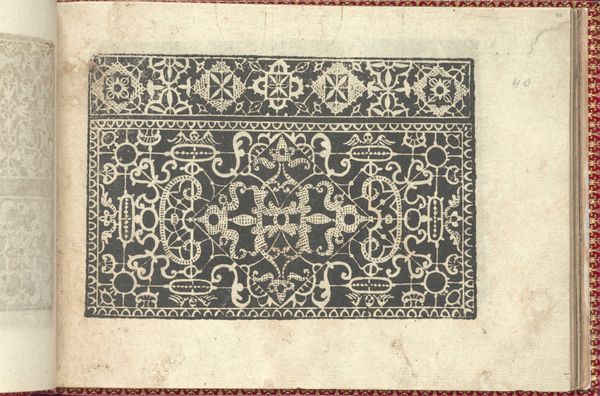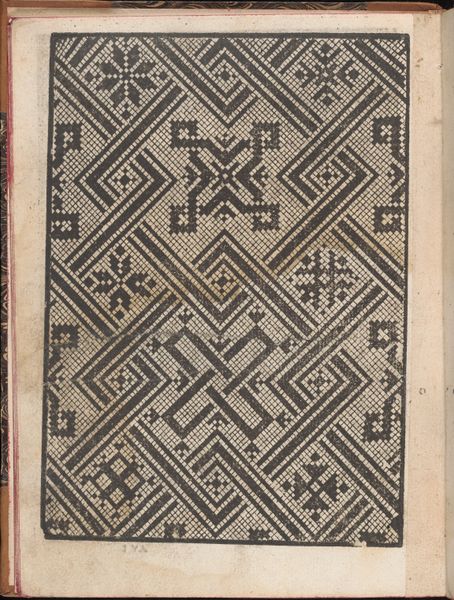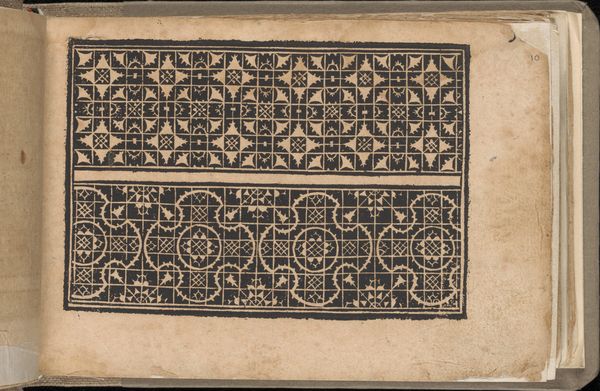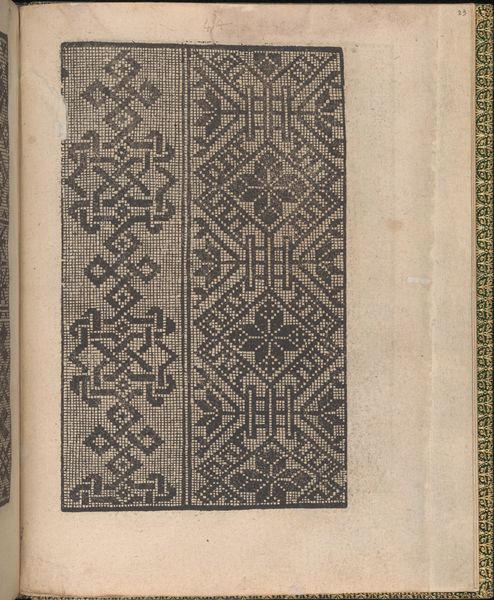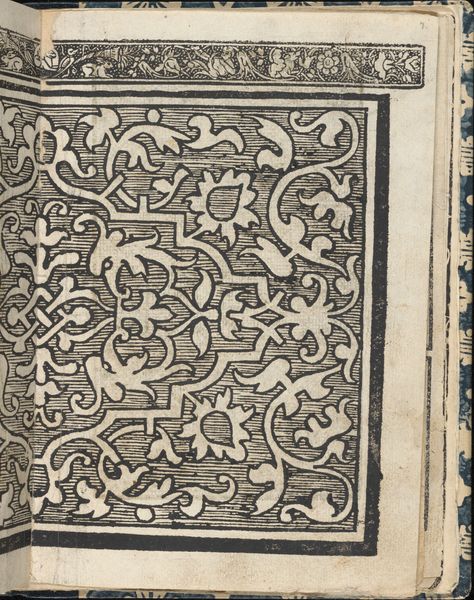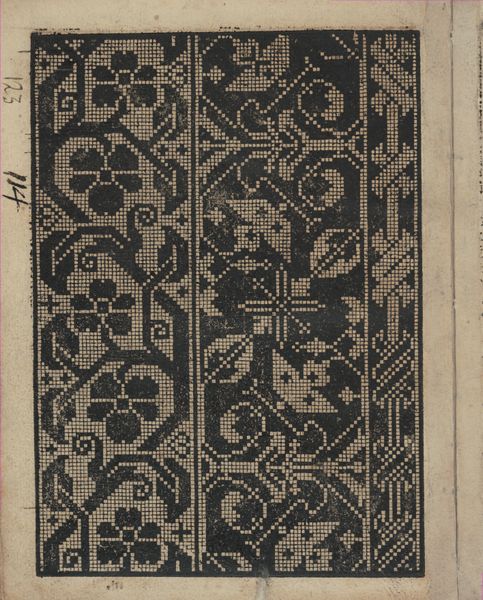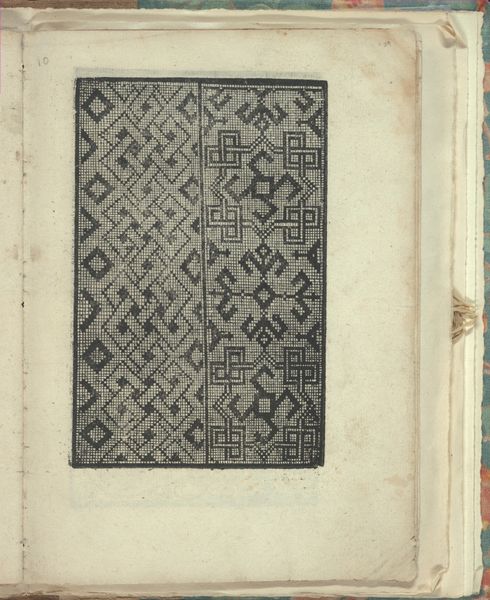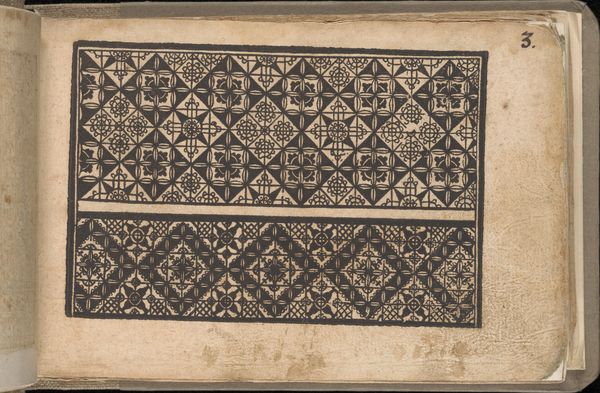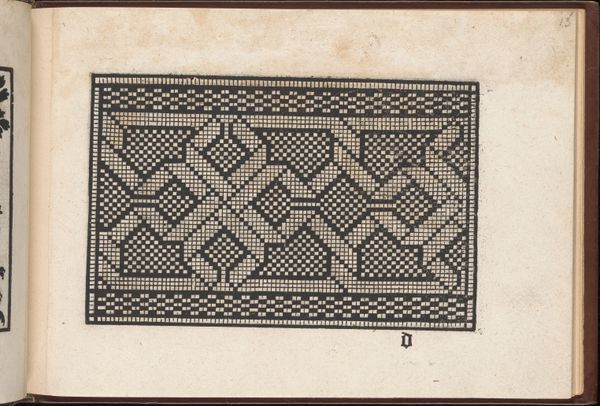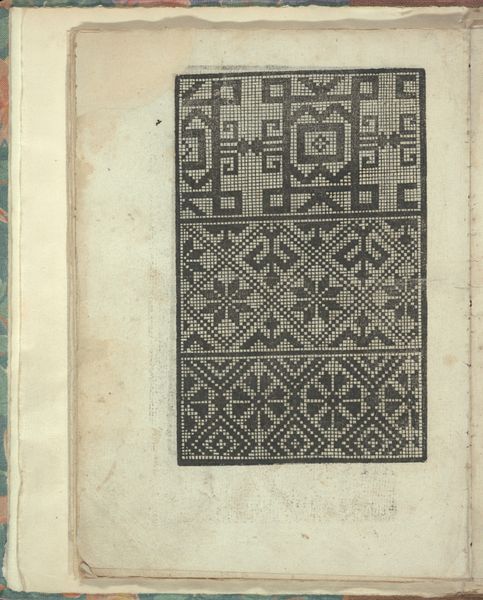
drawing, print, ink
#
drawing
# print
#
11_renaissance
#
ink
#
geometric
#
pen work
Dimensions: height 33 mm, width 44 mm
Copyright: Rijks Museum: Open Domain
This small print of arabesques, with a four-petaled flower at its center, was created by an anonymous artist. Its patterns invite us to consider the social and cultural context in which it was produced. Looking at the image, we see intertwining lines and stylized floral motifs. This design likely emerged from a cultural milieu where geometric and botanical patterns held symbolic meaning, often seen in Islamic art across various regions and eras. We can consider whether it reflects the influence of particular artistic traditions, perhaps from the Ottoman Empire, Moorish Spain, or elsewhere. By researching similar designs in historical archives, textile collections, and architectural ornamentation, we might better understand its cultural significance. The anonymity of the artist reminds us that cultural expression is often a collective endeavor, shaped by prevailing social norms and artistic conventions. Art history is not just about individual genius, but also about the shared cultural values that shape artistic production.
Comments
No comments
Be the first to comment and join the conversation on the ultimate creative platform.

